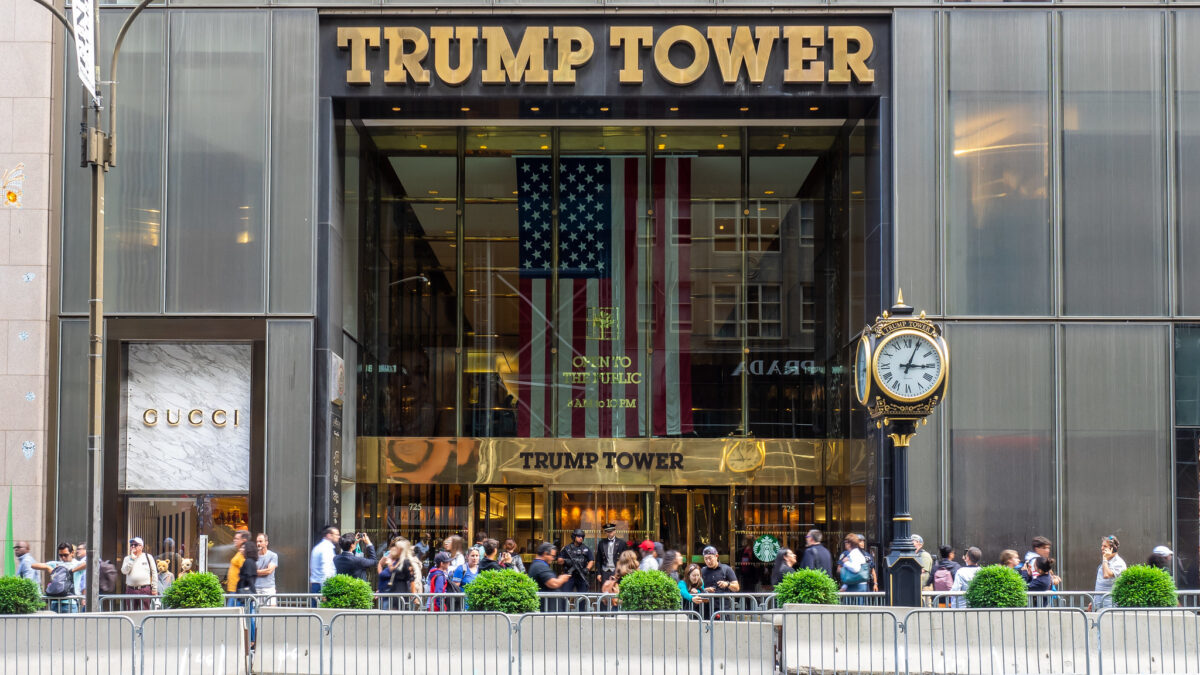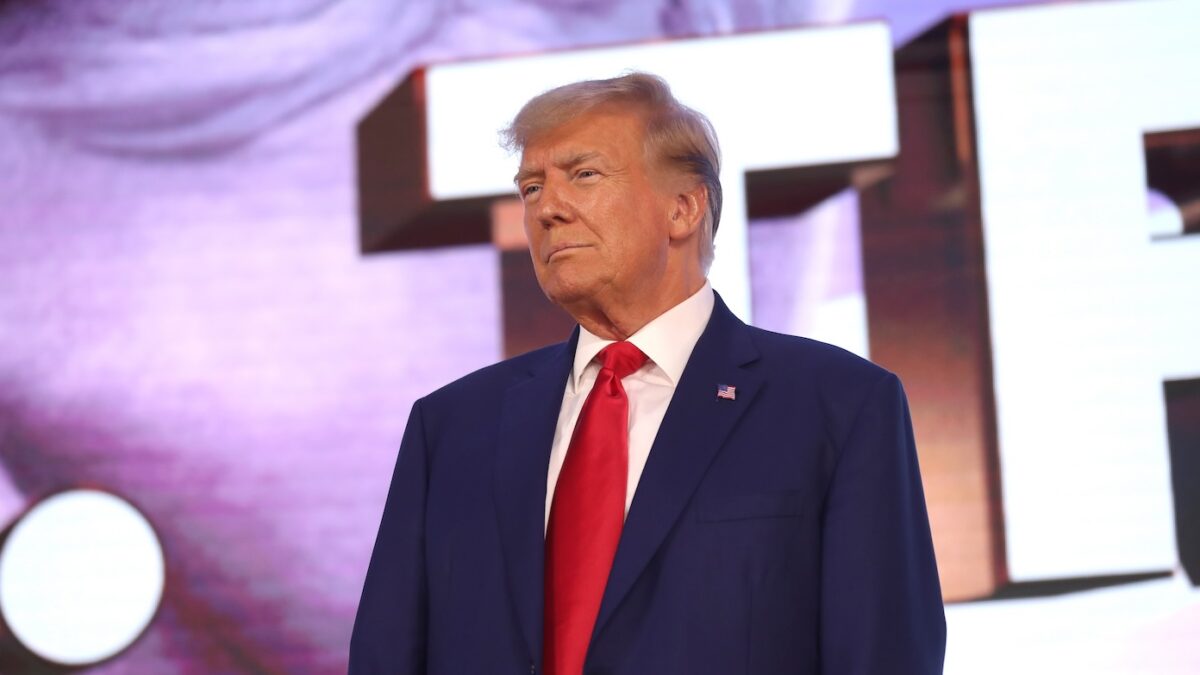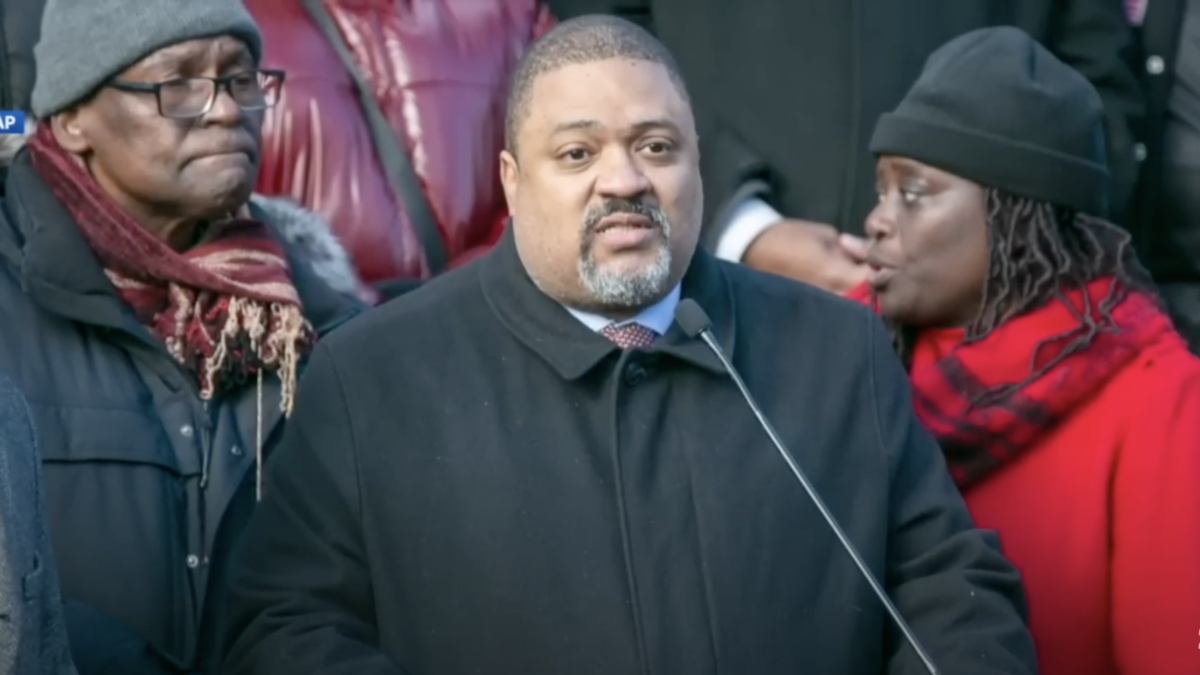In the latest episode of lawfare irony, New York Supreme Court Justice Arthur Engoron committed the very same financial fraud that he ruled former President Trump engaged in: economic overvaluation. The main difference is that Judge Engoron’s fraud has actual victims — Trump, the Trump organization, and the American people. Trump’s alleged fraud did not.
You are probably familiar with the basic facts of the Trump civil fraud case. New York Attorney General Letitia James, who campaigned on a Third World-esque platform targeting a specific political enemy, Trump, launched civil fraud proceedings against the Trump organization under what in essence is a New York consumer protection statute. Those are laws enacted to protect the “little guy” from fraud in consumer transactions.
James alleged that Trump overestimated — because you cannot calculate, you can only estimate — the value of real estate and other holdings that the Trump organization used to secure commercial loans. Apparently, James believed that “little guys” such as Deutsche Bank, with a market capitalization of $26 billion, needed her assistance in their loan business. They of course do not. You know this if you ever took out a mortgage. It’s shown in the mortgage disclosure form under “Appraisal Fee.” You see, banks perform their own valuation estimates even when they lend only a few hundred thousand dollars. They do more thorough estimates when they loan tens and hundreds of millions of dollars.
That brings us to Engoron, the man who decided the Trump case and committed financial fraud on Trump and America. Engoron was forced to make certain obvious conclusions based on undisputed evidence. There were no victims of the alleged fraud by Trump. There were no losses that resulted from the alleged fraud. The “little guys” such as Deutsche bank that made the loans had indeed performed their own valuation estimates, were paid back on the loans fully and on time, and made huge profits on the loans. These “little guys” were quite pleased with their business with Trump and wanted to do even more business with the man.
Overvaluing Trump’s ‘Ill-Gotten Gains’
In any sane world, that would have been the end of the matter. Alas, we are in radical Democrat-controlled New York. So Engoron pulled out a rarely used form of “equitable” relief called “disgorgement,” which can be applied “notwithstanding the absence of loss to individuals.” Disgorgement, he wrote, “focuses on the gain to the wrongdoer” and thereby prevents the wrongdoer from “retaining ill-gotten gains.” Engoron then proceeded to economically overvalue Trump’s alleged “ill-gotten gains” to such a preposterously false extent that Engoron’s own financial fraud outdoes anything that Trump was alleged to have done.
First, Engoron ordered Trump to disgorge $168 million in so-called interest payment “savings” that Trump purportedly realized on certain loans from lenders. According to Engoron, Trump’s overvaluation of assets allowed him to take advantage of the lower interest rates that the lenders offered on recourse loans compared to non-recourse loans.
Non-recourse loans are those secured solely by the property being financed. Again, think of your own home mortgage. If you default on your mortgage payments, the bank can foreclose on your house. But it has no other “recourse” against you or your other assets to recover any losses, hence the term “non-recourse.” By contrast, recourse loans provide the lender additional avenues of recovery (such as a personal guarantee, additional collateral) that the lender can “go after” if the borrower defaults. Because recourse loans provide more security, and therefore less risk for lenders, they typically carry lower interest rates than non-recourse loans.
Engoran ordered Trump to disgorge an amount equal to the interest payment “savings” ($168 million) that the Trump organization realized by taking advantage of the recourse loans, rather than the higher-interest non-recourse loans, offered by the lenders. But Engoron’s methodology — if you want to call it that — grossly overvalued the disgorgement amount because it was predicated on a false apples-to-oranges comparison.
Recourse and non-recourse loans have different interest rates because they buy different things. A recourse loan buys you, at the stated interest price, the advance of the loan proceeds as well as the economic risk that the bank can go after you and all your other assets if the project does not succeed. A non-recourse loan buys you, at the usually higher interest price, the advance of the loan proceeds but no economic risk that the bank can go after you or your other assets.
So Trump’s “ill-gotten gains,” to the extent there were any, must be calculated as the interest payment “savings” less the value of the additional economic risk that Trump undertook with recourse financing. Engoran’s refusal to value and account for this additional assumed economic risk renders his disgorgement calculation falsely “overvalued.”
Engoron easily could have employed a non-fraudulent, apples-to-apples methodology. That method would calculate Trump’s purported “ill-gotten” interest “savings” by comparing the recourse loan rates that Trump actually received from the lenders with the recourse loan rates Trump would have received had he not allegedly overvalued his assets. But the problem for Engoron is that applying this proper economic analysis would result in $0 of “ill-gotten gains” for Trump.
This is because the recourse loan rates that Trump obtained were based on the lenders’ own estimates and valuations, not Trump’s valuations. In other words, the actual recourse loan rates obtained by Trump are exactly equal to the recourse loan rates Trump would have received absent his alleged “overvaluations.” Thus, Engoron falsely “overvalued” his $168 million disgorgement calculation by … all $168 million.
Fabricating Old Post Office Building Profits
Judge Engoron also ordered the Trumps to “disgorge” approximately $135 million in profits they received from the acquisition, transformation, and subsequent sale of the Old Post Office property in Washington, D.C. On this issue too, Engoron based his order in large part on the theory that “without the ill-gotten savings on interest rates,” Trump would “not even have been able to invest in the Old Post Office and/or other projects.” This Engoron determination “overvalues” the disgorgement amount for the same reason set forth above — Trump in fact obtained no “ill-gotten savings on interest rates.” Thus, Engoron falsely inflated this $135 million portion of his disgorgement valuation by the full $135 million.
Engoron’s analysis is otherwise economically absurd. His reasoning is limited to a parenthetical in which he quips, no Trump valuations, “no deal.” Of course, that flimsy “analysis” in no way establishes that Trump’s profits from the Old Post Office are “ill-gotten gains.” The loans may have gotten Trump into the deal (a questionable proposition in its own right unless you can categorically eliminate all other theoretical alternatives). But in all events, that’s as far as the loans took him.
The profits were made by Trump’s creative and well-managed program to transform a beautiful, but largely unused, old post office building into a luxurious hotel. Loans were no guarantee of success. If they were, the old building would not have sat idle in D.C. for the many years that it did. Judge Engoron’s decision to attribute all of the profits from the post office project to the underlying loans constitutes yet another improper and extreme “overvaluation” of the disgorgement amount.
Unlike Trump’s purported “overvaluations,” Engoron’s financial manipulation has actual victims — Trump, his family, and the Trump organization. But the harm goes much deeper than that. Made in an election year against a front-running major party candidate, Engoron’s ruling is a financial fraud on America.








